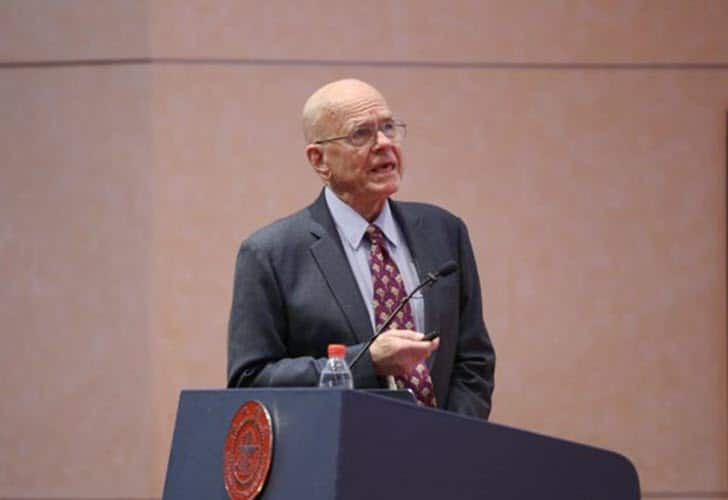Unlocking Chemistry’s Treasures: The Legacy of Karl Barry Sharpless

Karl Barry Sharpless is an American chemist. He was awarded the Nobel Prize in Chemistry.
Life and Career
He was born on 28 April 1941, in Philadelphia, Pennsylvania. He received his Bachelor of Arts degree in chemistry from Dartmouth College in 1963. He then earned his Ph.D. in chemistry from Stanford University in 1968, where he worked under the guidance of Prof. Henry Eyring.
He is best known for his work on the development of click chemistry, a method for rapidly and reliably synthesizing new compounds by linking together small building blocks. Click chemistry has been widely adopted in drug discovery, materials science, and other areas of chemistry.
In addition, to click chemistry, he has made important contributions to the field of catalysis, particularly in the area of asymmetric catalysis. He has developed several highly efficient and selective catalytic systems that have enabled the synthesis of a wide range of chiral molecules, including pharmaceuticals and natural products.
He has also contributed to the field of organic synthesis through the development of new reactions and methodologies, such as the Sharpless epoxidation and the Sharpless asymmetric dihydroxylation, which are widely used in the synthesis of complex organic molecules.
Award and Legacy
He was awarded the Nobel Prize in Chemistry in 2001, along with William S. Knowles and Ryoji Noyori, for his work on the development of catalytic asymmetric synthesis. He has received numerous other awards and honors including Priestley Medal (2003), King Faisal International Prize in Science (2002), and Tetrahedron Prize (1996).
His legacy in chemistry is significant. His development of click chemistry has transformed the field of chemical synthesis, enabling the rapid and reliable creation of new compounds with a wide range of applications, from drug discovery to materials science. Sharpless’s work on asymmetric catalysis has also had a major impact on the field, enabling the synthesis of chiral molecules with high selectivity and efficiency.
He has trained numerous students and postdoctoral researchers who have gone on to make important contributions to chemistry and related fields. His work continues to inspire new research and advances in the field of chemistry today.
Observer Voice is the one stop site for National, International news, Sports, Editor’s Choice, Art/culture contents, Quotes and much more. We also cover historical contents. Historical contents includes World History, Indian History, and what happened today. The website also covers Entertainment across the India and World.

